How Do Drain Cleaners Work? The Impressive Answer!
-
Pete Ortiz
- Last updated:
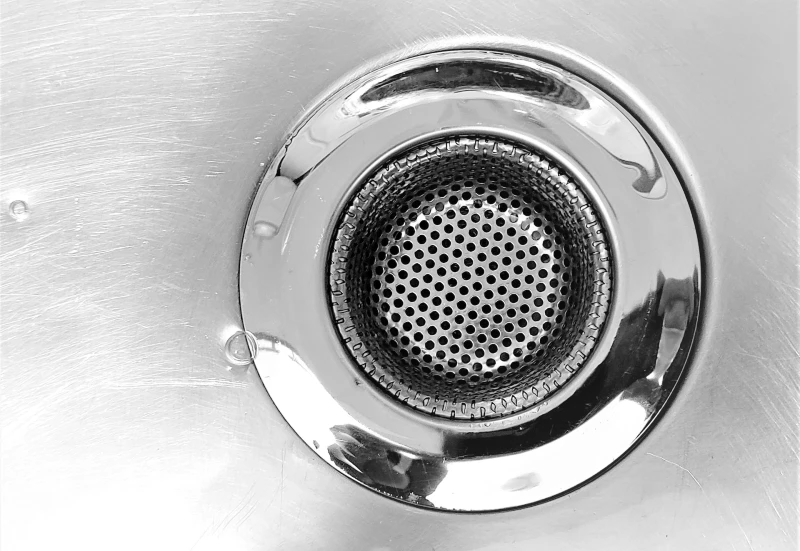
Drain cleaners are a quick and effective method for clearing clogged drains. Most drain cleaners use a combination of chemical agents as well as mechanical force to clear out blockages and restore proper drainage flow. Here, we take a look at how these solutions work and the benefits they offer.
How Does It Work?
Drain cleaners are chemical compounds that unclog drains by dissolving grease, hair, soap scum, and other materials that can build up in pipes. These compounds typically contain high concentrations of chlorine or sulfuric acid, which work to break down the clog.
In order to work effectively, most drain cleaners require a certain amount of time to dissolve the buildup in your pipes. Depending on the severity and type of clog, you may need to leave the cleaner in for several hours or even overnight for it to take effect.
Some chemical drain cleaners also come in foaming formulas, which help them stay in the pipe and work their way down to the clog.
After the drain cleaner has had a chance to do its job, it’s important to flush the pipes with hot water to remove any remaining residue or buildup. This will ensure that your drains are clear and operational. It’s also important to wear gloves and safety goggles when handling drain cleaners, as the chemicals can be hazardous if not handled properly.
Lastly, it’s best to avoid using chemical drain cleaners on a regular basis, as they may damage your pipes over time. If you find yourself needing them often for clogs and buildup, it’s best to consult a plumber who can help you determine the root cause of the issue.
With proper use, drain cleaners can be an effective way to clear clogged drains. Just remember to take the necessary safety precautions and flush your pipes afterward for the best results.
The 4 Different Types of Drain Cleaners
Drain cleaners come in a variety of forms, from liquid to powder. Depending on the severity of the clog, you may choose one over the other. So let’s look at the most common types of drain cleaners to help you better determine which one is right for you.
1. Liquid Drain Cleaners
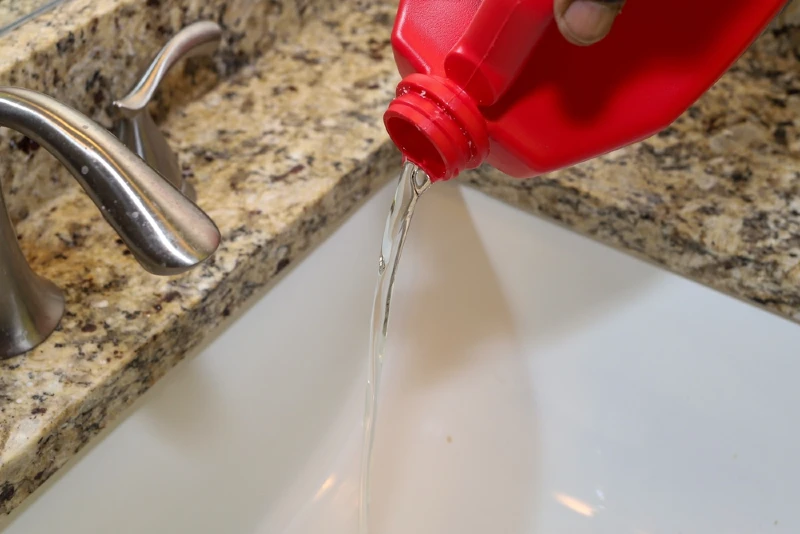
These cleaners use concentrated chlorine or sulfuric acid to dissolve clogs. Most come in bottles that can be poured directly into a sink or tub. Be sure to use the recommended amounts—too much can damage your pipes.
2. Powder Drain Cleaners
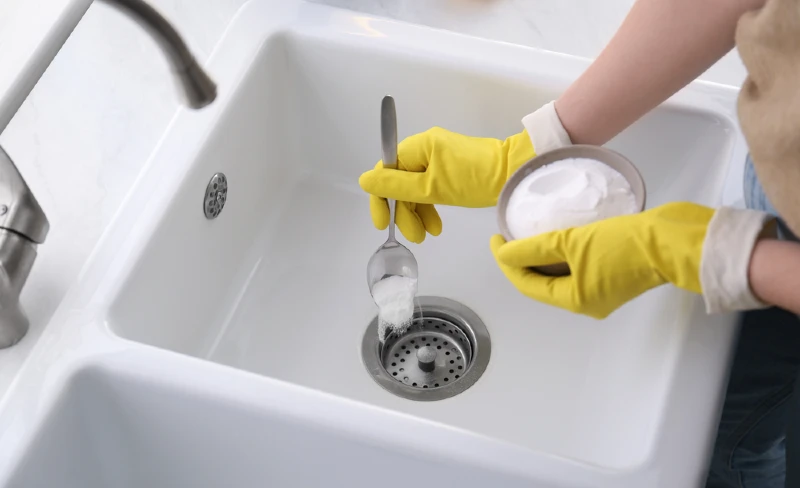
Powder drain cleaners are made up of a combination of chemicals, such as sodium hydroxide, sodium hypochlorite, and aluminum particles. When mixed with water, they create an exothermic reaction that helps break down clogs. Just be sure to wear protective gloves and eyewear when using these types of cleaners.
3. Enzymatic Drain Cleaners
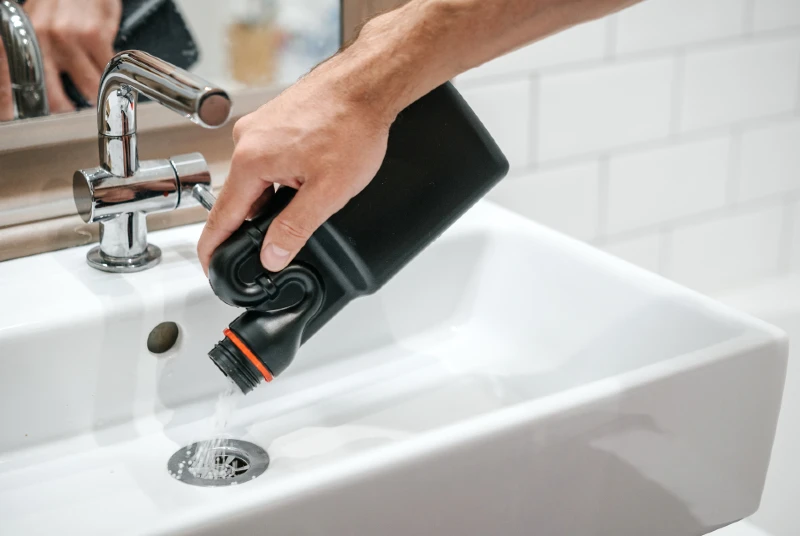
These drain cleaners use enzymes and bacteria to break down organic substances like food, grease, and soap scum. They’re much safer for your pipes than chemical-based drain cleaners since they don’t corrode the pipes.
4. Plunger Drain Cleaners
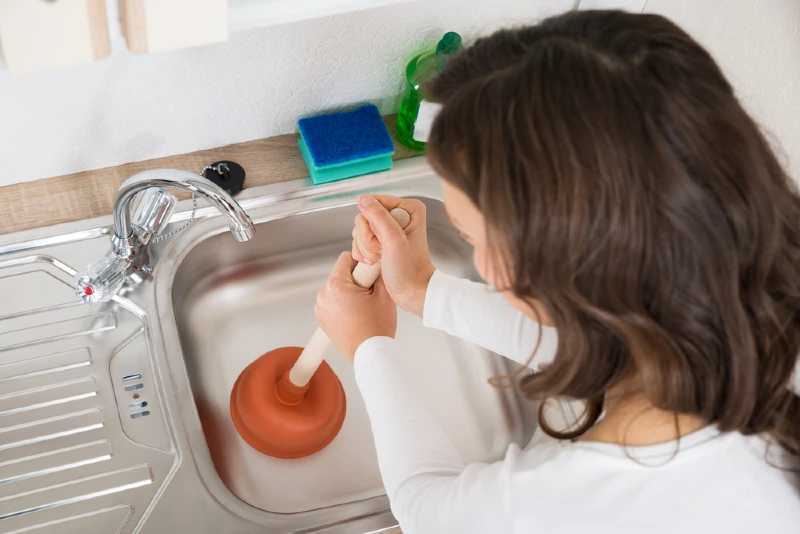
Plungers are a mechanical form of drain cleaner. They’re great for use on clogs that don’t respond to chemical cleaners, but they can also be used in conjunction with these cleaners. Simply place the plunger over the drain and press it down several times—this should help loosen any stuck substances.
Be sure to use the right type of drain cleaner for your situation. If you’re unsure which one to choose, contact a professional plumber who can help you make the best decision. Also, be aware that some drain cleaners contain toxic ingredients, so always read the instructions and warning labels carefully before using them.
Where Is It Used?
Drain cleaners are most commonly used in homes with plumbing systems. Since the chemical compounds found in drain cleaners help to break down and dissolve substances that may be blocking the pipes or drains, homeowners tend to use drain cleaners to tackle grease, hair, soap scum, food waste, oil, and other organic materials that end up in drains.
But be aware that drain cleaners can kill the good bacteria in septic tanks, so use your drain cleaner wisely to prevent unwanted problems.
In industrial settings, drain cleaners can also be used to clear away sludge from pipes and drains that are too large or clogged for mechanical cleaning. In this case, these drain cleaners usually contain more powerful ingredients and should be used with caution.
It is important to remember that certain types of drains may require a different type of drain cleaner, so always check the label or consult with a professional to make sure you are using the right product for your situation.
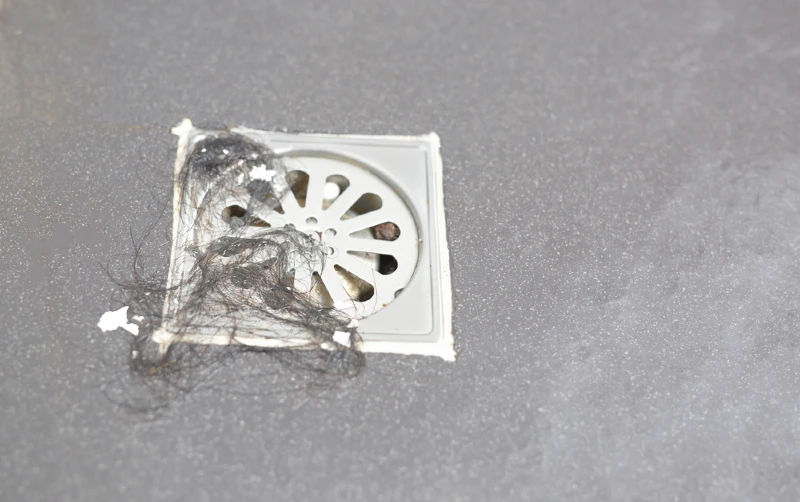
Advantages of Drain Cleaners
Drain cleaners are a convenient and effective way to unclog sinks, showers, bathtubs, and toilets in your home. They can be used for clogs caused by a buildup of grease, soap, hair, and other debris. Drain cleaners are often preferred to more conventional methods, such as plungers or manual removal of the clog, due to their convenience and effectiveness.
- Fast: Using a drain cleaner is often faster than other methods since you don’t need to manually remove the clog. Depending on the severity of the clog and the type of cleaner used, it can take anywhere from several minutes to several hours for the drain cleaner to fully unclog the line.
- Effective: Drain cleaners are also very effective in removing clogs from pipes and drains. This is because of their powerful chemical compounds. These compounds break down the grease and other materials that have hardened into a blockage in the pipes.
- Versatile: Depending on the type of cleaner used, it can also help to remove soap scum, food particles, and other debris that are blocking the drain line.
- Affordable: Another advantage of using drain cleaners is their affordability. Many brands are available at a variety of price points, making them more accessible than other methods.
In addition to all these advantages, most drain cleaners are designed to be used multiple times. And as such, you don’t have to buy a new bottle every time the line becomes clogged.
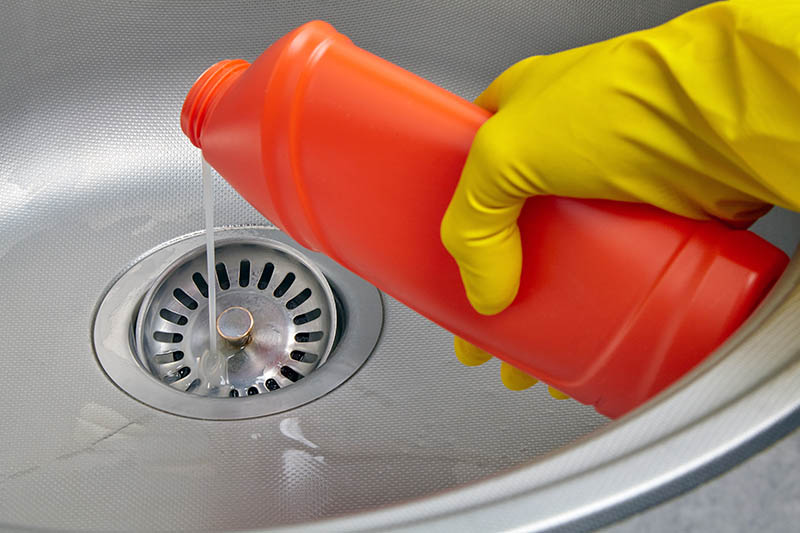
Disadvantages of Drain Cleaners
Although drain cleaners can be helpful in unclogging drains, they can also have some disadvantages. Some of the most common issues associated with drain cleaners include:
- Damage to Pipes: Chemical drain cleaners are often very strong and corrosive, which can result in damage to your pipes if used too frequently or improperly. Over time, continued use of these strong chemical cleaners can cause metal pipes to corrode and become brittle.
- Toxicity: The chemicals found in many drain cleaners are toxic and can be dangerous to handle, particularly if the instructions for use are not followed correctly. When using a drain cleaner, it is important that appropriate safety gear, such as gloves and eye protection, is worn and the area is well-ventilated.
- Difficulty Clearing Stubborn Blockages: Many drain cleaners are not effective in clearing very stubborn blockages caused by things like tree roots or large pieces of debris. If you have severe blockages, it may be best to seek help from a professional plumber who has access to more powerful tools and solutions.
It’s also crucial to have a basic understanding of plumbing systems, including knowledge of the type of pipes used in your home and how to properly mix chemicals. Without this knowledge, it is easy to make mistakes that can result in further damage or injury.
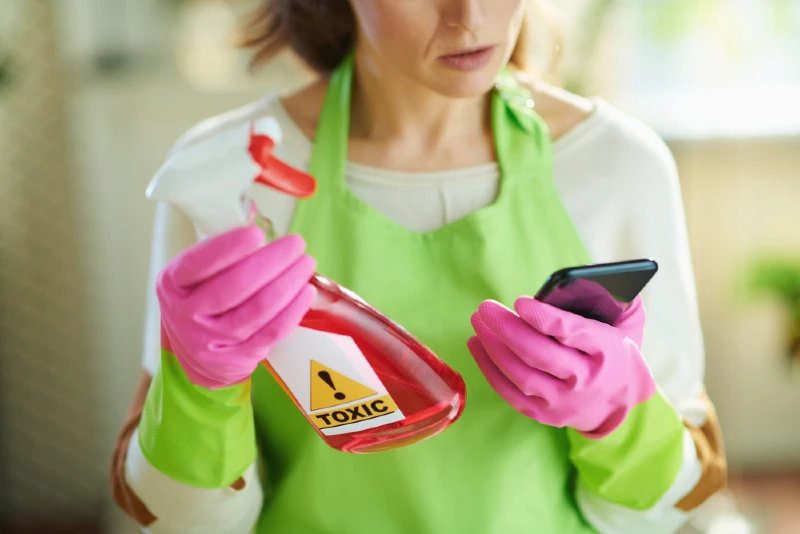
Frequently Asked Questions
How do drain cleaners work?
Drain cleaners use a variety of methods to remove clogs and blockages from drains. Generally, these products contain caustic or acidic ingredients that react with organic matter, such as grease and hair, to break it down.
Additionally, some drain cleaners employ mechanical means such as augers, plungers, and pipe snakes to work more effectively.
Are drain cleaners safe?
Drain cleaners can be dangerous if not used properly. Always read the label before using a cleaner and follow directions carefully. Many products contain caustic ingredients that can cause skin irritation or worse if mishandled.
Therefore, avoid mixing different types of products or combining them with other chemicals, and avoid using them in toilets or garbage disposals.
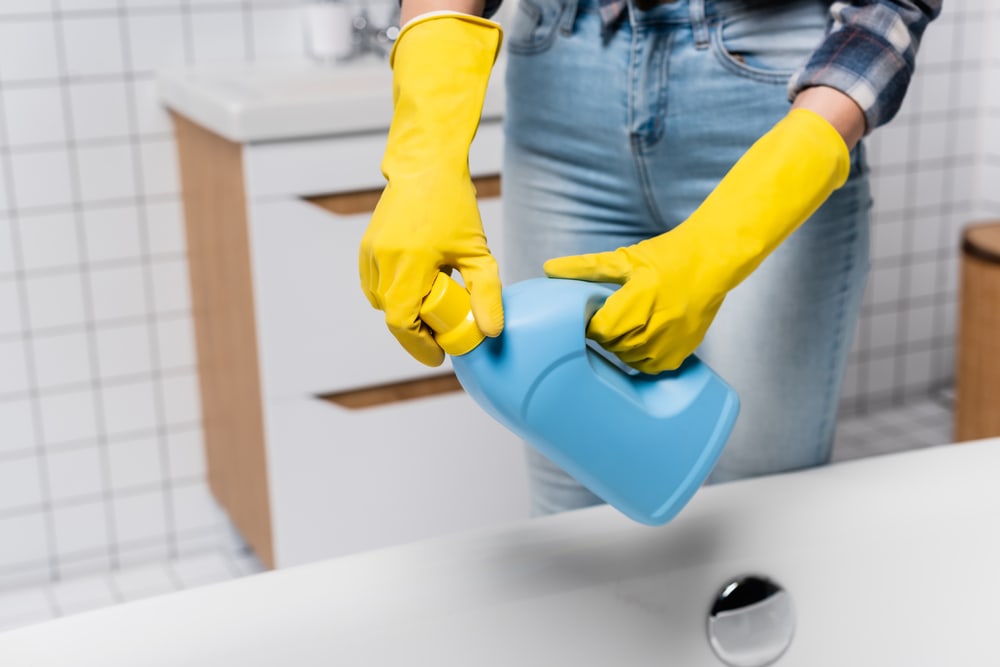
Are there any other methods for unclogging drains?
Yes, you can use a plunger to unclog slow-draining pipes or shower drains. You can also try pouring a solution of baking soda and vinegar into the drain to clear small clogs.
If that doesn’t work, you may need to use a manual auger or snake to remove difficult blockages. These methods are safer than chemical cleaners but may require more physical effort.
How often should I use a drain cleaner?
Most experts recommend using a drain cleaner only when necessary and not for regular maintenance. If you have frequent clogs, it may be a sign of an underlying issue that needs to be addressed by a professional plumber. Regular use of chemical cleaners can also damage pipes and lead to other plumbing problems in the long run.
Conclusion
Drain cleaners are an effective and convenient way to clear clogged drains in your home. But because they are so caustic and dangerous, always use caution when using any kind of drain cleaner.
Wear protective clothing, use them only as directed, and never pour them directly into a standing pool of water. Don’t forget to thoroughly flush the drain with hot water after you are done cleaning it out. With proper use, you should be able to unclog your drains and keep your pipes flowing.
Featured Image Credit: Daniel Dan, Unsplash
Contents




